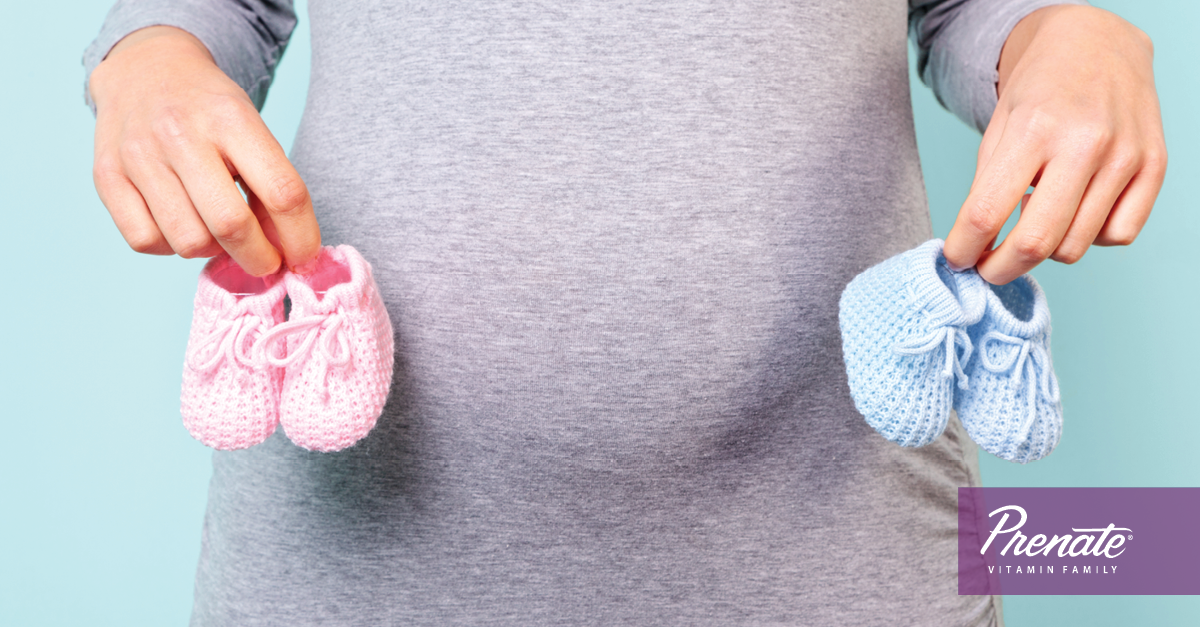Prenate® Enhance: The Most Advanced Prenatal Vitamin Designed with Advanced Maternal Age and Multiples in Mind
May 12, 2017
As women have become more focused on careers and as reproductive assistance technology has advanced, the hows and whens of pregnancy have changed. Prenate® Enhance is a prenatal vitamin designed to support the increased nutritional needs of women who choose to start families later in life and those who become pregnant with multiple babies as a result of assisted reproduction.
The Increase in Advanced Material Age
For the first time ever, more women are having babies in their 30s than in their 20s.1 The Centers for Disease Control and Prevention (CDC) released projections that show that the age of women who became first-time mothers in 2016 is older, on average, than those who gave birth as recently as 2014.1 Based on these statistics, it appears that women are postponing marriage and childbirth, and are defining themselves in ways other than motherhood. Often financial success, financial stability or a desire to focus on one’s self can lead women to seek pregnancy later in life.
Waiting later in life to start a family does have benefits. There may be more wealth earned and financial security for the child and family. However, this increase in maternal age is not without difficulties. The number of eggs, particularly healthy eggs, that women have in their bodies decreases as they age. According to the CDC, about 30 percent of women older than 35 who want to become pregnant have fertility issues.2
The Rise of Multiple Births
While infertility increases with a woman’s age, it also can occur in younger women. Ap- proximately 12 percent of women ages 15 to 44 years have trouble becoming pregnant or carrying pregnancies to term.2 But with technological advances, there are now more treatments and therapies available to assist with conception. Assisted reproductive technologies, such as in vitro fertilization (IVF) or intrauterine insemination (IUI), allow women to have children who other- wise would not become pregnant.
Some of the fertility drugs and treatments that help women conceive also increase the chance of twins, triplets or other multiple births. According to the National Center for Health Statistics more than 3.5 percent of all births each year are multiples.3 From 1915 to around the mid-1980s when reproductive therapies became widely available, the percentage of multiple births remained consistent at about 2 percent. Since 1915 multiple births remained around 2% of all births in the United States.3 Around the mid-1980’s when IVF and other reproductive technologies became widely available, this number started to rise.
Advanced Nutrition Prenatal Vitamins
Balancing the demands of work and family can create hectic schedules and leave women struggling to meet recommendations for diet and nutrition. Women who may be at a higher risk for multiples have an even greater and increased need for nutrients. A daily prenatal vitamin can help fill nutritional gaps to support the needs of both mothers and babies.
The Prenate® Enhance provides a step up in nutrient content. The once-daily, softgel prenatal vitamin offers advanced nutritional benefits. It contains 12 nutrient forms, including 400 mg of DHA, the most DHA available compared with other prescription prenatal vitamins.4-19 Plus the 1 mg folate is a blend of bioavailable L-methylfolate and traditional folic acid. Its nutrient doses and forms were selected to enhance absorption by the body. Talk to your doctor to see if Prenate® Enhance is right for you.
You Are About To Leave This Website
By clicking continue, this link will take you to a website to which Alora Pharmaceuticals Policies & Terms of Use do not apply. Alora and its subsidiaries do not control the content or accuracy of third-party websites and assume no responsibility for their use.










